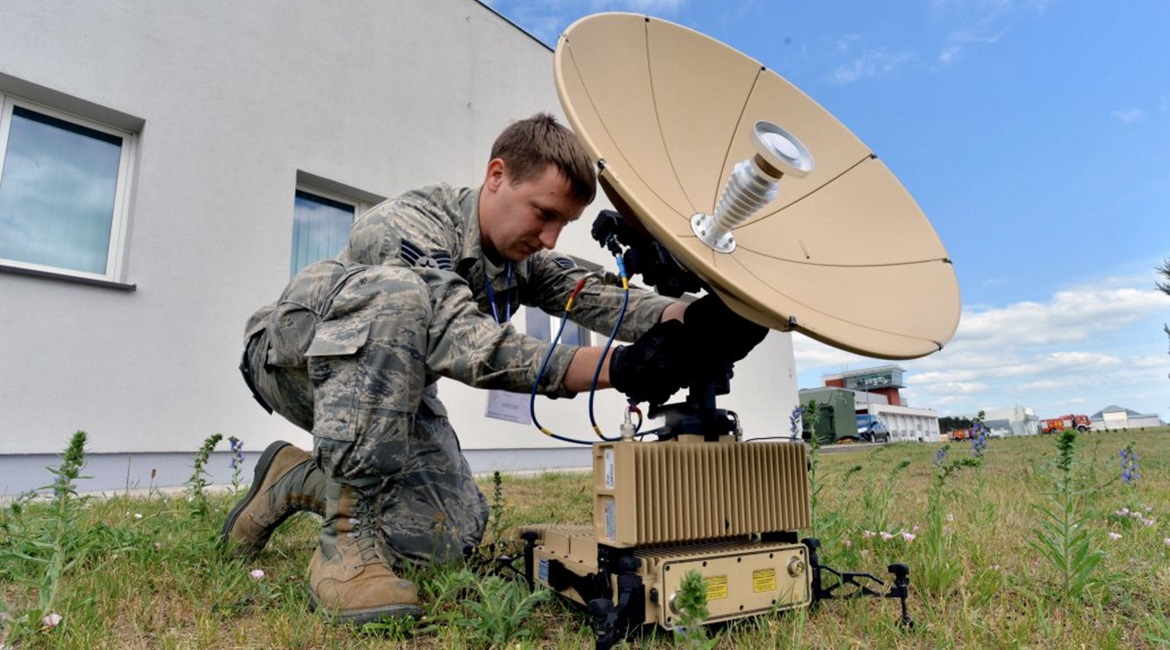
The US Marine Corps has selected L3Harris’ Panther II Very Small Aperture Terminals (VSAT) for satellite communications (satcom) operations, in support of the Marine Corps Wideband Satellite-Expeditionary (MCWS-X) programme.
The USD88 million total indefinite delivery, indefinite quantity (IDIQ) procurement deal for the Panther II will cover an initial delivery of the VSAT systems to the Corps, at a cost of USD21 million, according to a L3Harris statement issued on 9 November. The MCWS-X platform, as currently configured, includes the 96 cm variant of the Panther VSAT “in a tri-band configuration with multiple modular modems and power options,” company officials said.
The passively cooled Panther II features interchangeable feed capabilities to allow for quick radio frequency (RF) band changes, due to changing combat environments, as well as fine tune adjustments for elevation and Azimuth, according to a company fact sheet. The Panther II also supports iDirect Keyline capability, which allows the system to field the iDirect mp950 Board Satellite Modem. Optimised for size, weight, and power (SWaP) requirements, the mp950 meets MIL-STD 810G for expeditionary operations and the Keyline capability is designed to improve battery performance.

A US Air Force satellite communications technician with the 1st Combat Communications Squadron calibrates a L3 Panther during Baltic Operations 2015 at Powidz Air Base, Poland (Credit: US Air Force)
The Panther II will be an integral part of the Marine Corps’ VSAT Family of Systems (FoS), which ‘provides wideband, beyond-line-of-sight (BLOS), low-cost satellite communications to Marine Air-Ground Task Force (MAGTF) commanders from the Major Subordinate Command to Battalion levels,’ service budget documents stated. “The VSAT FoS provides the RF communications link in support of the transfer of voice, video, and data services,” they added.
Looking to read the full article?
Gain unlimited access to Janes news and more...






